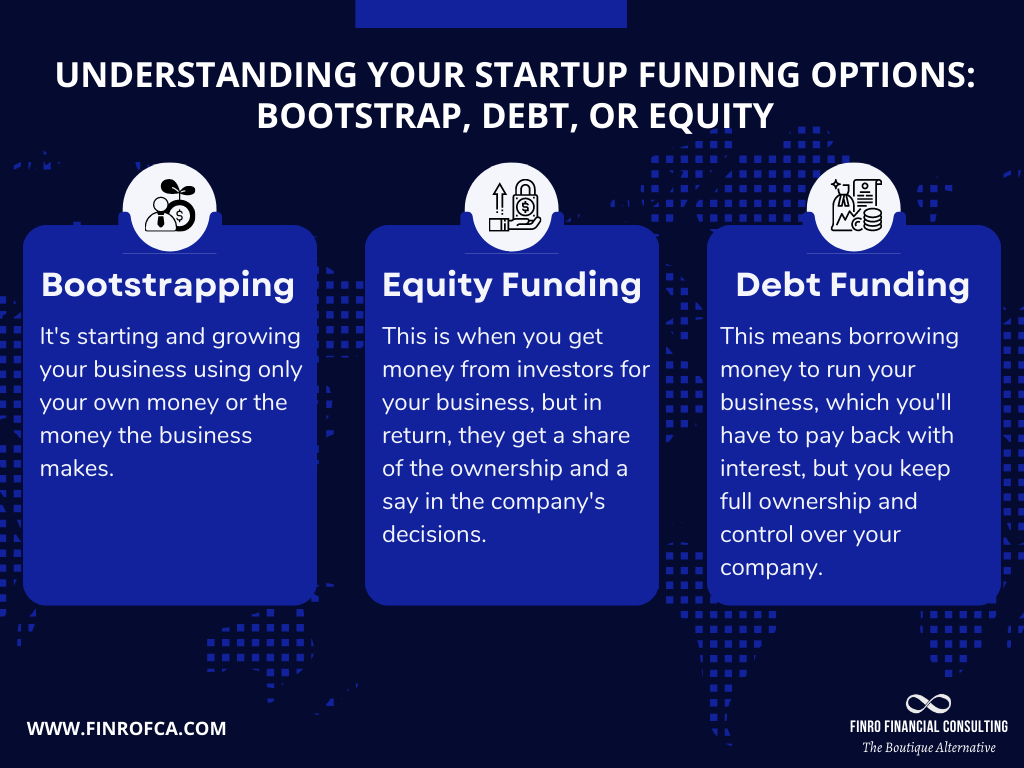Every entrepreneur dreams of building a successful business. But what does it really take to turn that dream into reality? While there’s no guaranteed formula, there are certainly a number of key ingredients that can significantly increase your chances of achieving long-term success.
1. Pursue Your Passion: Find the Fuel for Your Journey
Don’t just chase trends; chase your passion. While it’s important to identify a viable market opportunity, true fulfillment and perseverance often come from a genuine interest in what you’re doing. Your passion will be the fuel that keeps you going through the inevitable challenges and setbacks that come with any entrepreneurial journey. According to a Gallup study, engaged employees who are passionate about their work are 17% more productive than their disengaged counterparts.

2. Embrace Failure as a Stepping Stone
See setbacks as opportunities to learn and grow. Failures are an inevitable part of the business world. The key is to view them as learning experiences rather than insurmountable roadblocks. Analyze what went wrong, learn from your mistakes, and use that knowledge to refine your approach. Research by CB Insights found that 42% of startup failures are due to lack of product-market fit, highlighting the importance of learning from mistakes.

3. Mind Mapping: Unleashing Creativity for Business Ideas
Don’t get bogged down in traditional business plans; explore ideas visually. Mind maps are a powerful brainstorming tool that can help you visually organize your thoughts, explore connections, and spark new ideas. Unlike traditional linear business plans, mind maps allow for a more fluid and creative exploration of possibilities. A study by the University of British Columbia found that mind mapping improved memory recall by nearly 10% compared to traditional note-taking methods.

4. Find Your Perfect Partner: The Power of Co-Founders
The right co-founder can be your secret weapon. Having a co-founder can bring several advantages to your business. They can provide complementary skills and perspectives, hold you accountable, and share the workload. When searching for a co-founder, look for someone who shares your vision, values, and work ethic. According to a study by the Harvard Business Review, companies with a solo founder have a 30% chance of success, while those with co-founders have a 65% chance.

5. Sharpen Your Sales Skills: The Cornerstone of Every Business
Master the art of selling; it’s more than just closing deals. At its core, every business is about selling a product, service, or idea. Regardless of your industry, honing your sales skills will be essential for attracting customers, growing your business, and achieving financial success. A report by Salesforce states that companies with effective sales processes have a 28% higher revenue growth rate compared to those without.

6. Craft a Compelling Marketing Strategy: Reaching Your Target Audience
The right marketing strategy can be the bridge between you and your customers. In today’s digital age, there are a multitude of marketing channels at your disposal, from social media and content marketing to search engine optimization (SEO) and pay-per-click (PPC) advertising. The key is to identify the channels that resonate most with your target audience and tailor your message accordingly. According to Hubspot, businesses that prioritize blogging are 13 times more likely to experience positive ROI from their marketing efforts.

7. Leverage PR for Credibility and Brand Awareness
Get your name out there and build trust with potential customers. Public relations (PR) is a strategic communication process that can help you build brand awareness, establish credibility, and shape public perception of your business. Explore press release opportunities, media outreach, and strategic partnerships to generate positive publicity. A study by Edelman found that 63% of consumers trust what influencers say about a brand more than what the brand says about itself.

8. Seek Funding Strategically: Exploring Investment Options
There are multiple avenues to secure the capital you need to grow. Depending on the nature and stage of your business, there are various funding options available. Consider bootstrapping (using your own savings), angel investors, venture capitalists, or small business loans. Carefully research each option and choose the one that best aligns with your business goals and financial situation. Data from CB Insights reveals that startups with successful funding rounds have an average of 2.3 co-founders.

9. Sponsorships: A Strategic Partnership for Growth
Partner with complementary brands to expand your reach. Sponsorships can be a mutually beneficial way to gain exposure and credibility for your business. Look for brands that align with your target audience and values, and develop a sponsorship proposal that outlines the benefits for both parties. A report by IEG indicates that for every $1 spent on sponsorships, businesses generate an average of $2.87 in revenue.

10. Building a Strong Brand Identity: The Cornerstone of Customer Trust
Your brand is more than just a logo; it’s the essence of your business. A strong brand identity communicates your values, mission, and unique selling proposition to your target audience. Invest in developing a consistent brand image across all your marketing materials, customer interactions, and online presence. According to a study by Lucidpress, consistently presented brands can see a revenue increase of up to 23%.

11. Cultivate Your Personal Brand: Become a Thought Leader
Establish yourself as an expert in your field to attract customers and investors. In today’s digital world, building a strong personal brand can be a powerful tool for attracting customers and investors. Share your expertise through content creation, social media engagement, and public speaking opportunities. A survey by Infuencer found that 49% of consumers depend on influencer recommendations when making purchase decisions.

12. Hire the Right People: Building a Winning Team
Your team is your most valuable asset; invest in recruiting the best. The success of your business hinges on the quality of your people. Take the time to carefully recruit individuals who possess the skills, experience, and work ethic necessary to achieve your business goals. When building your team, look for cultural fit as well as technical skills. Research by Gallup suggests that companies with engaged employees outperform their competitors by 147% in earnings per share.

13. Embrace Continuous Growth: A Recipe for Long-Term Success
Never stop learning and evolving to stay ahead of the curve. The business landscape is constantly changing. To stay ahead of the competition, it’s crucial to embrace a growth mindset and continuously seek opportunities to learn and improve. Encourage a culture of innovation within your company and empower your employees to develop their skills. Companies that prioritize employee training enjoy a 24% higher profit margin than those that don’t, according to the Association for Talent Development.

14. Go Global: Expanding Your Reach for Exponential Growth
The world is your market; think beyond geographical limitations. In today’s interconnected world, there are more opportunities than ever to reach a global audience. Consider e-commerce platforms, digital marketing strategies, and partnerships to expand your reach beyond your local market. Cross-border e-commerce sales are projected to reach $1 trillion by 2025, according to Accenture.

15. Find a Mentor: Seek Guidance from Experienced Leaders
Learn from the best; tap into the wisdom of experienced mentors. A mentor can provide invaluable guidance, support, and accountability as you navigate the challenges of entrepreneurship. Look for someone who has a proven track record of success in your industry and who shares your values and vision. 70% of mentored businesses survive after 5 years, double the rate of non-mentored businesses, says Kabbage.

16. Avoid Common Pitfalls: Learn from the Mistakes of Others
Many businesses fail due to preventable mistakes; learn from their missteps. There are a number of common pitfalls that can derail even the most promising businesses. Conduct thorough research, understand your target market, and carefully manage your finances to avoid these pitfalls. Cash flow problems contribute to 82% of small business failures, reports a study by U.S. Bank.

17. Make Your Own Luck: Be Proactive and Embrace Calculated Risks
Don’t wait for opportunity to strike; create your own breaks. While there’s always an element of chance in business, successful entrepreneurs are those who are willing to take calculated risks and make their own luck. Be proactive, identify potential opportunities, and don’t be afraid to step outside your comfort zone. Research by the University of Chicago found that proactive behavior leads to a 6 times higher success rate in finding a new opportunity.

18. Understand the Nuances of Equity: Foundational Knowledge for Business Ownership
Equity financing is a common funding option; ensure you understand the implications. If you plan on seeking investment for your business, it’s essential to have a firm grasp of equity financing. Understand how equity ownership works, the different types of equity securities, and the potential impact on your control over the business. According to Fundable, companies that retain over 50% equity after multiple funding rounds have a 73% higher chance of exit success.

19. Know When to Sell: Exiting Your Business on Your Terms
There’s a right time to cash in on your investment. If you’re considering selling your business, careful planning is critical. Consider factors like market conditions, your business’s financial health, and your personal goals to determine the optimal time to exit. The average sale price for a small business is 2.2x its yearly revenue, states BizBuySell’s 2020 report.

20. Take Action: Don’t Wait for the Perfect Idea
Analysis paralysis can stall progress; take action and course-correct as needed. Don’t get bogged down waiting for the perfect idea or ideal circumstances to launch your business. Start small, take action, and be prepared to adapt and learn as you go. Parkinson’s Law states “Work expands to fill the time available for its completion” – act now to prevent delays.

21. Originality is Overrated: Focus on Execution
Focus on executing a proven idea well rather than chasing originality. While innovation is important, it’s not always about inventing something entirely new. There’s value in taking an existing concept and executing it exceptionally well. Identify a niche market or existing business model that you can improve upon and deliver superior value to your customers. Only 10% of Kickstarter’s most funded projects are truly original, according to CB Insights research.

22. Delegate and Outsource: Focus on Your Strengths
You don’t have to do everything yourself; empower your team and leverage outsourcing. As your business grows, it’s impossible to do everything yourself. Delegate tasks to your team members and outsource non-core functions to free up your time and energy to focus on your strengths and strategic initiatives. Companies that outsource save around $24,000 per year on average, according to entrepreneurship data.

By incorporating these 22 actionable ideas into your business strategy, you can significantly increase your chances of achieving long-term success. Remember, building a successful business is a journey, not a destination. Embrace the challenges, learn from your mistakes, and never stop growing and evolving.




